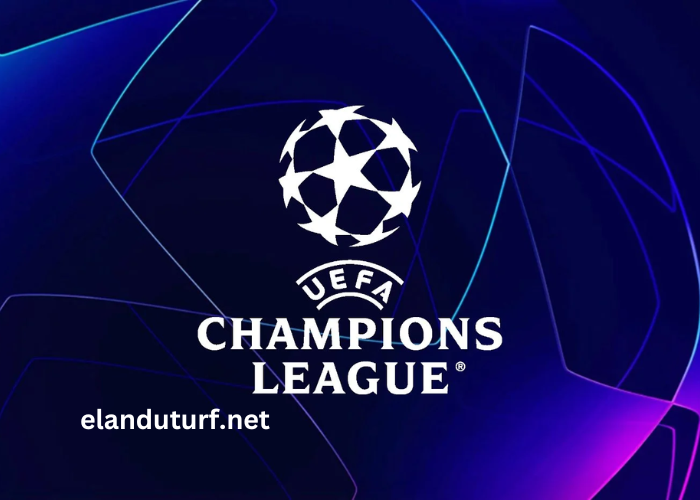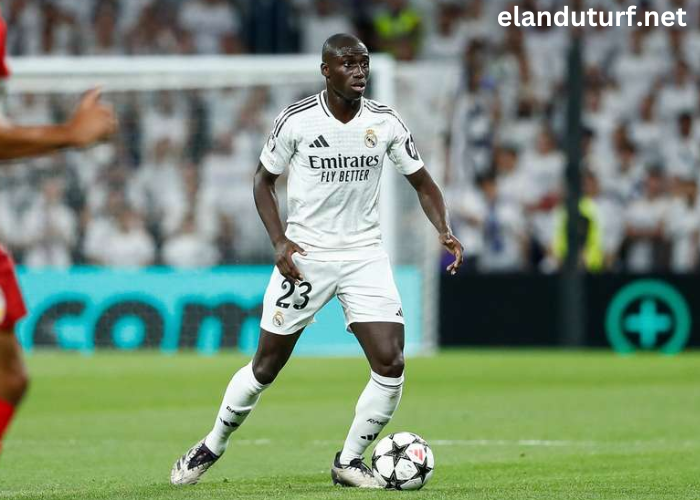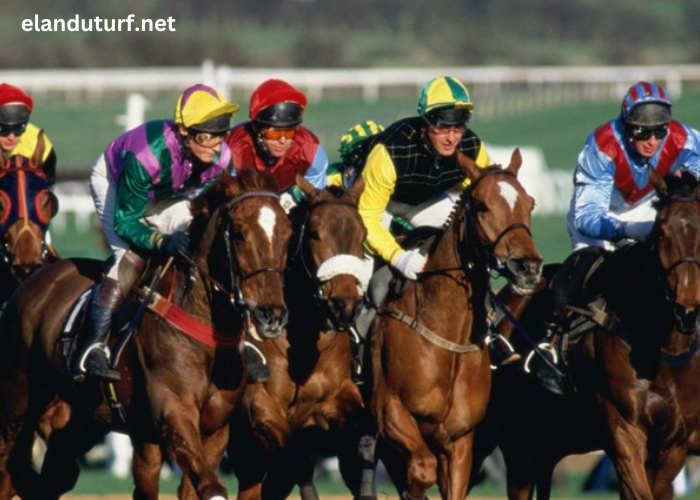The Ligue Des Champions—known as the UEFA Champions League in English—is the pinnacle of European club football. For fans and analysts alike, it represents the best of the sport, showcasing elite teams, unforgettable matches, and thrilling moments. In this comprehensive guide, we’ll delve into every aspect of the competition, from its history and structure to current updates and future prospects.
What is the Ligue Des Champions?
The Ligue Des Champions is an annual club football competition organized by the Union of European Football Associations (UEFA). It brings together the top teams from across Europe to compete for the prestigious title of European champion.
History of the Ligue Des Champions
The Origins
The competition began as the European Cup in 1955. The idea for the tournament was proposed by French sports journalist Gabriel Hanot, who envisioned a continental competition for Europe’s best clubs. The inaugural season saw 16 teams compete, with Real Madrid emerging as the first champions.
Evolution into the UEFA Champions League
In 1992, the competition was rebranded as the UEFA Champions League. This change came with a new format and a broader scope, allowing more teams from different countries to participate. The rebranding also introduced the famous trophy that is awarded to the winner each year.
Milestones
- 1955: The first European Cup is held.
- 1992: The competition is renamed the UEFA Champions League.
- 1997: The group stage format is introduced.
- 2009: The final is played at the Stadio Olimpico in Rome, where FC Barcelona defeats Manchester United.
- 2021: Chelsea wins the title against Manchester City in a dramatic final.
The Structure of the Ligue Des Champions
The Ligue Des Champions features a complex structure that ensures the best teams from across Europe have the chance to compete.
Qualification Rounds
Teams qualify for the Champions League through their domestic leagues and cup competitions. There are several stages of qualification:
- Preliminary Round: The very first stage, featuring lesser-known teams.
- First Qualifying Round: Additional teams compete to advance.
- Second Qualifying Round: More teams enter the fray, moving closer to the group stage.
- Third Qualifying Round: The final qualification stage before the playoffs.
Group Stage
The group stage consists of 32 teams divided into 8 groups of 4 teams each. Teams play home and away matches against each team in their group.
- Round-Robin Format: Each team plays 6 matches (3 home and 3 away).
- Points System: Teams earn 3 points for a win, 1 point for a draw, and 0 points for a loss.
- Advancement: The top two teams from each group advance to the knockout stage.
Knockout Stage
The knockout stage includes the Round of 16, Quarter-finals, Semi-finals, and the Final.
- Round of 16: The top two teams from each group face one of the runners-up from another group.
- Quarter-finals: The winners from the Round of 16 advance.
- Semi-finals: The last four teams compete to reach the final.
- Final: The two remaining teams battle for the trophy.
The Final
The final is a single match held at a pre-selected neutral venue. It is one of the most-watched football events in the world, often featuring high-profile teams and players.
Teams and Legends of the Ligue Des Champions
The Ligue Des Champions has been graced by many of football’s greatest teams and players.
Historic Clubs
- Real Madrid: The most successful club in Champions League history, with 14 titles.
- AC Milan: Known for their storied history and 7 Champions League titles.
- Liverpool FC: With 6 titles, Liverpool is one of the most successful English clubs in European competition.
- FC Barcelona: Barcelona has won the Champions League 5 times, with a reputation for beautiful football.
- Bayern Munich: The German club has won the trophy 6 times, known for their consistent performances.
Legendary Players
- Cristiano Ronaldo: The top scorer in Champions League history with 135 goals.
- Lionel Messi: Renowned for his skill and having won the Champions League 4 times with Barcelona.
- Zinedine Zidane: A French legend who won the trophy as a player and manager.
- Paolo Maldini: An iconic defender with 5 Champions League titles to his name.
Key Moments and Memorable Matches
The Ligue Des Champions has provided countless memorable moments over the years.
Memorable Finals
- 2005: The “Miracle of Istanbul” where Liverpool came from 3-0 down at half-time to win on penalties against AC Milan.
- 2012: Chelsea won their first Champions League trophy by defeating Bayern Munich in a dramatic penalty shootout.
- 2019: Liverpool’s stunning comeback against Tottenham Hotspur in the final, securing their sixth title.
Famous Matches
- 1999: Manchester United’s last-minute victory over Bayern Munich in the final, with Teddy Sheringham and Ole Gunnar Solskjær scoring in injury time.
- 2017: Real Madrid defeated Juventus 4-1 in the final, showcasing their dominance in European football.
The Impact of the Ligue Des Champions
The Ligue Des Champions is more than just a football competition; it has a significant impact on various aspects of the sport.
Financial Impact
- Revenue Generation: The Champions League generates substantial revenue through broadcasting rights, sponsorship deals, and ticket sales.
- Club Finances: Success in the competition can lead to increased revenue for participating clubs, which can be reinvested in player transfers and infrastructure.
Influence on Football Culture
- Global Appeal: The Champions League has a global audience, fostering football culture around the world.
- Inspiration: It serves as an inspiration for aspiring players and coaches who dream of competing at the highest level.
Development of Football
- Talent Exposure: The competition showcases emerging talents and gives them a platform to perform on a global stage.
- Coaching Innovation: Coaches experiment with tactics and strategies, contributing to the evolution of football.
Current Trends and Future Prospects
The Ligue Des Champions continues to evolve, with new trends and developments shaping the future of the competition.
Current Trends
- Increased Club Participation: More teams from different leagues are competing, reflecting the growing strength of football across Europe.
- Technological Advancements: The introduction of technologies like VAR (Video Assistant Referee) to ensure fairness in matches.
- Financial Fair Play: UEFA’s efforts to ensure that clubs operate within their financial means to promote sustainability.
Future Prospects
- Expansion: There are discussions about expanding the format to include more teams and matches.
- Increased Globalization: Further efforts to grow the competition’s global reach and appeal.
- Enhanced Digital Experience: Continued development of digital platforms for fans to engage with the competition.
How to Follow the Ligue Des Champions
For fans looking to stay updated with the latest from the Champions League, here are some tips on how to follow the competition effectively.
Official UEFA Website
- Visit: UEFA Champions League
- Features: Official news, match fixtures, results, and live updates.
Sports News Websites
- Popular Sites: ESPN, BBC Sport, Sky Sports
- Features: Match previews, live scores, expert analysis, and post-match reports.
Social Media
- Follow: Official UEFA Champions League accounts on Twitter, Facebook, and Instagram.
- Features: Real-time updates, highlights, and fan interactions.
Mobile Apps
- Download: UEFA Champions League app
- Features: Live scores, match highlights, and notifications.
Football Forums and Blogs
- Explore: Forums like Reddit’s r/soccer and football blogs for fan opinions and discussions.
- Features: Community discussions, fan predictions, and match reviews.
The Role of Analysts and Commentators
Analysts and commentators play a crucial role in the Champions League experience.
Responsibilities
- Pre-Match Analysis: Providing insights and predictions before the games.
- Live Commentary: Offering play-by-play updates during the matches.
- Post-Match Analysis: Reviewing the game’s key moments and performances.
Notable Figures
- Gary Neville: Former Manchester United player and popular football analyst.
- Jamie Carragher: Ex-Liverpool defender and well-known commentator.
- Ian Wright: Former Arsenal striker and football pundit.
Conclusion
The Ligue Des Champions stands as the zenith of club football, a competition that brings together the best teams, players, and moments from across Europe. From its rich history and complex structure to the memorable matches and future prospects, the Champions League offers something for every football fan.




